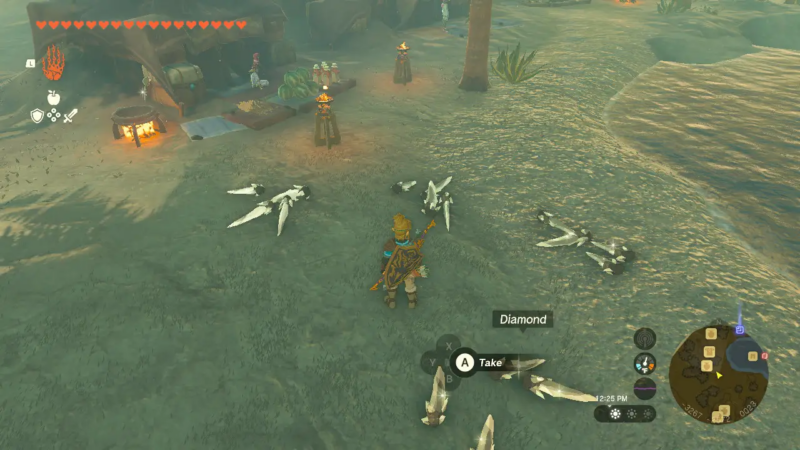Why Tears of the Kingdom is worse without item duplication

Well, it was nice while it lasted.
For a few weeks now, The Legend of Zelda: Tears of the Kingdom players have been able to use a surprising number of glitches to endlessly duplicate items, materials, weapons, and more to their heart’s content. But the endless item party officially comes to an end today, with data miners reporting that the new ver. 1.1.2 game update fixes these unintended endless item glitches (you can still stock up your inventory before installing the update, by all accounts).
While Nintendo lumps this fix under “several issues [that] have been addressed to improve the gameplay experience,” I’m reluctant to call this an improvement at all. On the contrary, I think Nintendo should embrace this “glitch” and make secret codes for infinite items (and money and health, etc.) an integral, intentional option for players who just want to tinker with the game’s amazing creation engine.
I just wanna build
Tears of the Kingdom is, at its heart, a game about building. The game’s Ultrahand and Fusion abilities are designed to unlock the player’s creativity and encourage a child-like sense of experimentation and wonder. There are countless videos of players using Link’s new powers to build incredible machines, weapons, and wild tools in ways the developers likely never expected.
When I watch videos like this, though, I can’t help but think of the unseen grind those creators had to endure gathering the basic abilities and materials often needed for their elaborate construction projects.
Travelling by horseback in Tears of the Kingdom?
Nah fam, big wheel 🤝🛞 pic.twitter.com/2YILtgUs10
— liccnuke (@liccnuke) May 16, 2023
Don’t get me wrong, I understand that there are important game design reasons for making players scrounge and fight for limited resources in the game. The slow rollout of various abilities, weapons, Zonai devices, and more helps players slowly learn about the game’s systems. Those carefully parceled resources also create an incredibly satisfying gameplay loop, giving players countless mini-obstacles to overcome and making each new accomplishment in the game’s expansive world feel “earned.”
But sometimes you don’t want to “earn” your fun. Sometimes you want to skip all that carefully designed gameplay drudgery and just play around with the game like it’s a big box of Lego blocks. Sometimes you just want to fly around Hyrule in a jet-powered rocket plane without spending 15 minutes gathering rocket-plane building materials. Sometimes you just want to use an overpowered weapon to tear through enemies like tissue paper, just because you can.
Letting Tears of the Kingdom players indulge in those desires when they want would make it a better game and would in no way ruin the game as it exists currently.
A sandbox history
Plenty of developers in gaming’s short history have understood and indulged players’ desire to skip the “intended” gameplay drudgery to just tinker around in a game’s sandbox. SimCity 2000, for example, let players use codes to get functionally infinite funding for metropolis construction. Grand Theft Auto 3‘s secret codes let players get as many weapons, money, and health as they wanted. Doom‘s secret codes let players clip through walls in “god mode” to their heart’s content. Debug modes in games like Sonic the Hedgehog let players use level design tools intended for the developers.
The existence of these secret codes (which weren’t that “secret” after they routinely filled up entire sections of ’90s video game magazines) didn’t ruin the “intended” design of these games; players who wanted the “true” game experience could and did easily ignore them. Nor did using these codes delude anyone who used them into thinking that they had “beat the game” in any real sense of the word; players who use cheats know that they’re just indulging in some silly fun in the game’s world.
https://arstechnica.com/?p=1942544